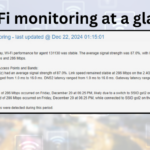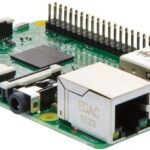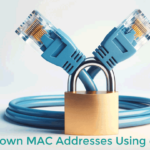Tips and Tricks to Boost Your Wi-Fi Signal
Introduction
In today’s digital age, a strong and reliable Wi-Fi signal is essential to stay connected with the world. Whether you’re streaming movies, playing games, or working from home, a weak Wi-Fi signal can cause frustrating delays and interruptions.
Fortunately, there are several ways to boost your Wi-Fi signal strength and improve your online experience. In this article, we will explore some effective tips and tricks to improve your Wi-Fi signal at home.
Check Your Wired Internet Connection
Before blaming your Wi-Fi network for slow internet speeds, it is essential to ensure that your wired internet connection is functioning correctly.
You can connect your computer directly to the modem with an Ethernet cable to check if your internet speed is faster than your Wi-Fi network.
If your wired internet connection is slow, contact your internet service provider (ISP) for a fix.
Reposition Your Mesh Satellites
The position of your Wi-Fi router and mesh satellites can significantly affect the strength of your Wi-Fi signal.
Thick walls, furniture, and other obstacles can block or weaken the signal. You can reposition your mesh satellites closer to your room’s entrance to help boost the signal.
You can also avoid placing your router near other devices that emit electromagnetic waves, such as microwaves, refrigerators, or cordless phones.
Upgrade Your Router Antennas
Most Wi-Fi routers come with standard antennas that may not provide optimal signal coverage. Upgrading your router antennas can significantly improve the Wi-Fi signal’s range and strength.
You can replace your router’s existing antennas with high-gain antennas that provide more extended coverage and can penetrate through walls and other obstacles.
Use a Signal Amplifier or Wi-Fi Extender
If your home has dead spots where the Wi-Fi signal is weak or non-existent, you can use a signal amplifier or Wi-Fi extender to extend the Wi-Fi signal’s range.
Signal amplifiers, also known as range extenders, capture the Wi-Fi signal from your router and amplify it to cover a more extensive area.
Wi-Fi extenders, also known as repeaters, connect to your existing Wi-Fi network and retransmit the signal to cover a broader area. Both options can help you achieve better signal coverage in your home.
Change Quality-of-Service Settings
Quality-of-Service (QoS) settings can affect the performance of your Wi-Fi network. QoS settings prioritize specific types of network traffic, such as video streaming or online gaming, over other types of traffic.
Changing QoS settings can improve the performance of your Wi-Fi network for specific applications.
This LifeWire.com article also provides 9 tips to boost Wi-Fi signal that could be helpful.
Use OutagesIO to Monitor Your Wi-Fi
The OutagesIO.com hardware agents can monitor your wired connection or your WiFi, 4G, 5G, LTE Internet service automatically.
These are self-updating for the best possible reports.
More about our hardware agents for monitoring your services.









